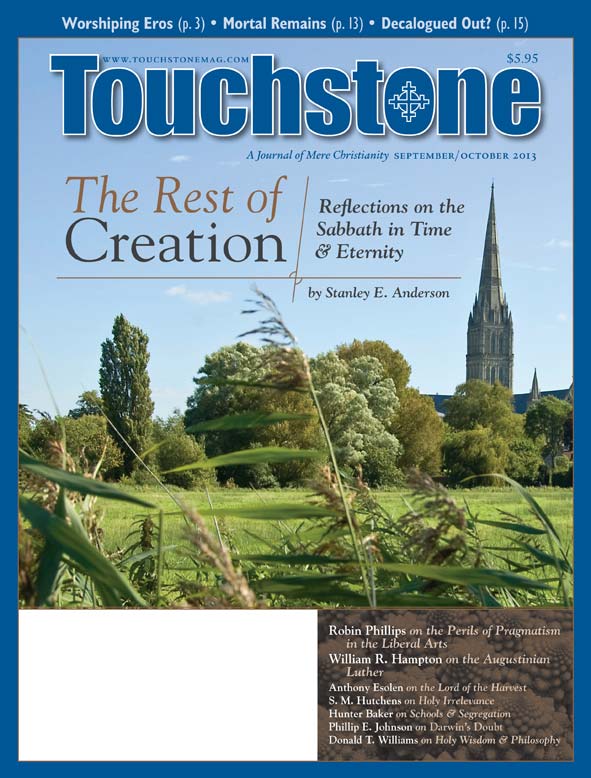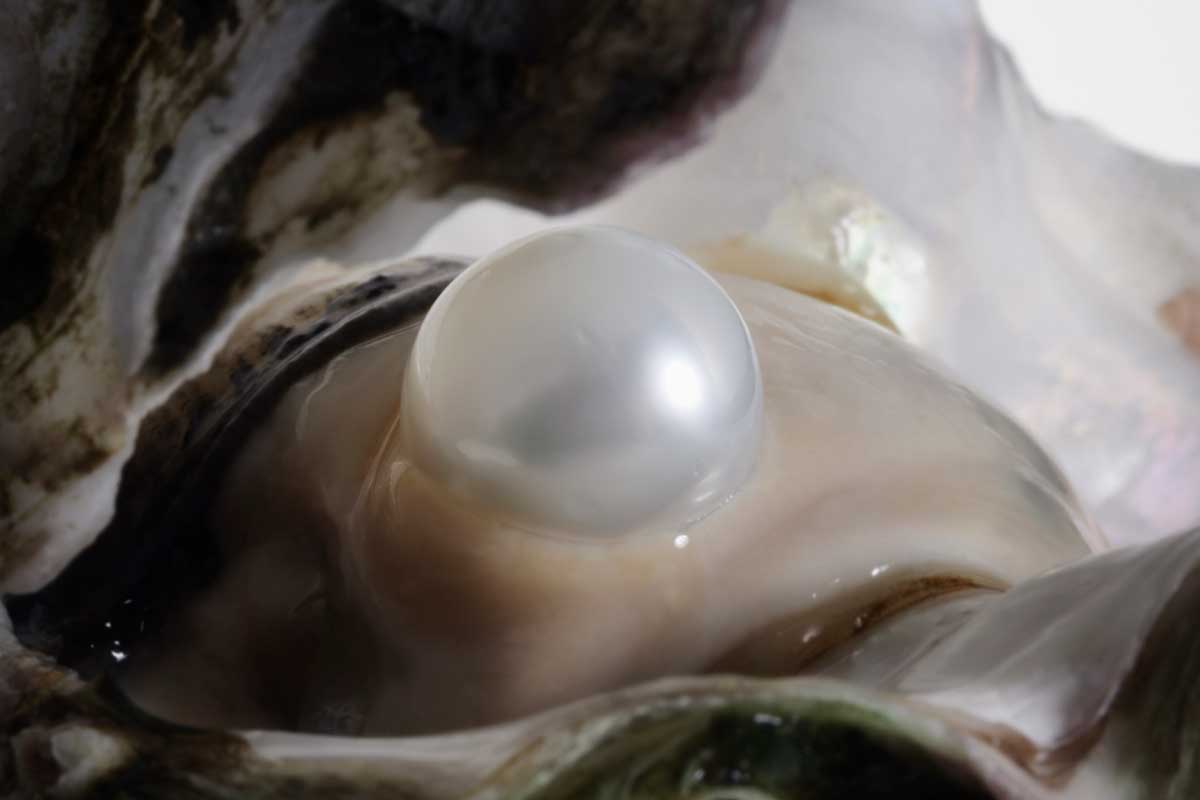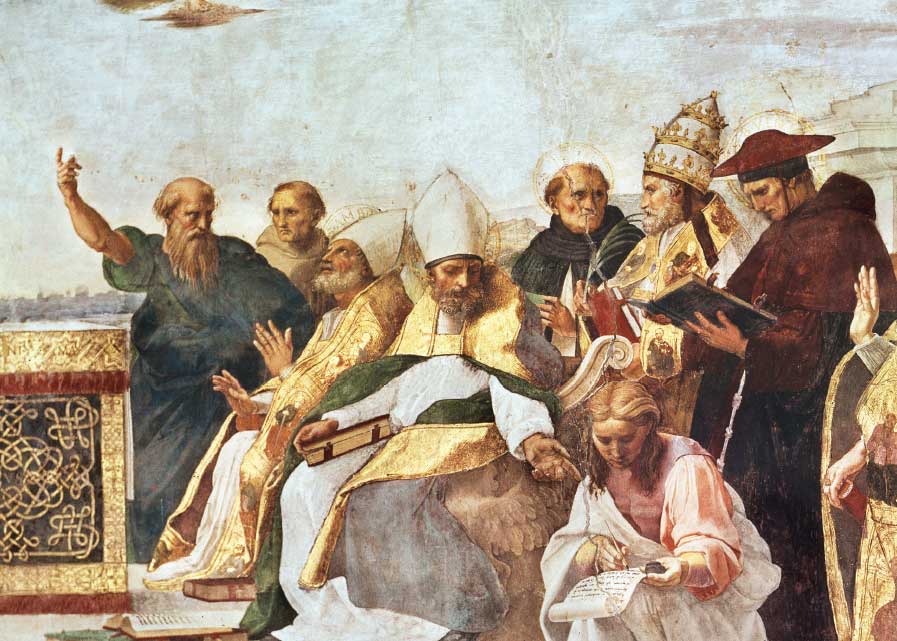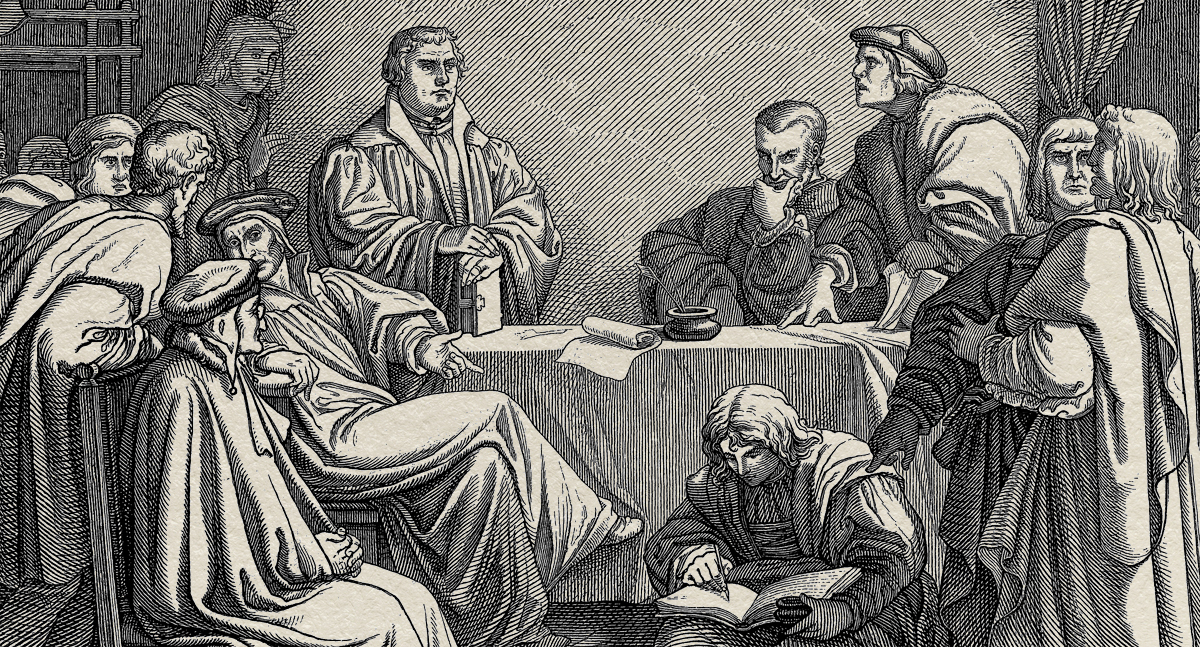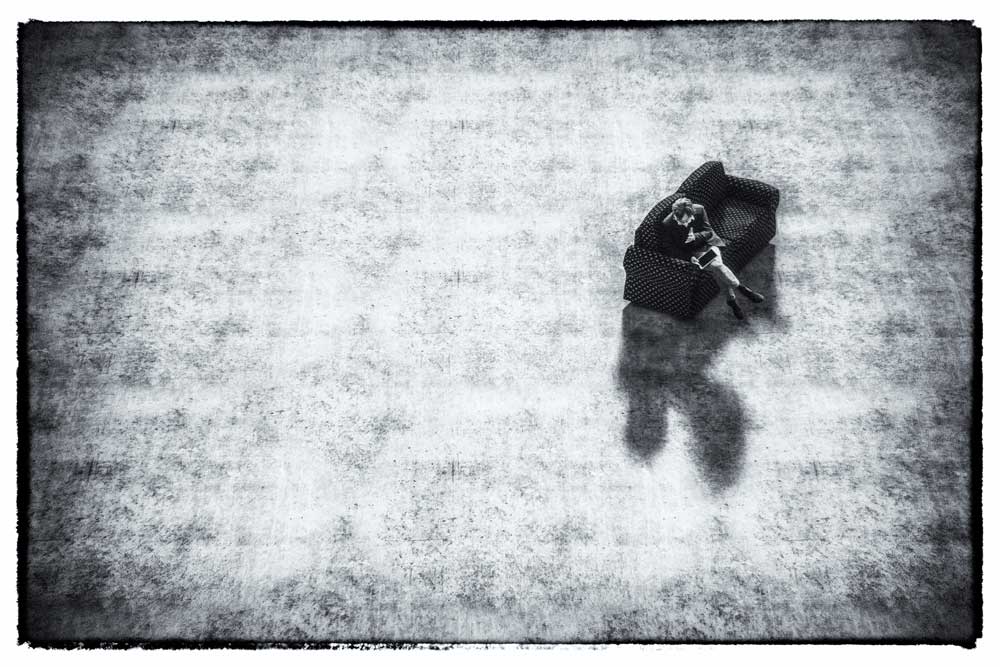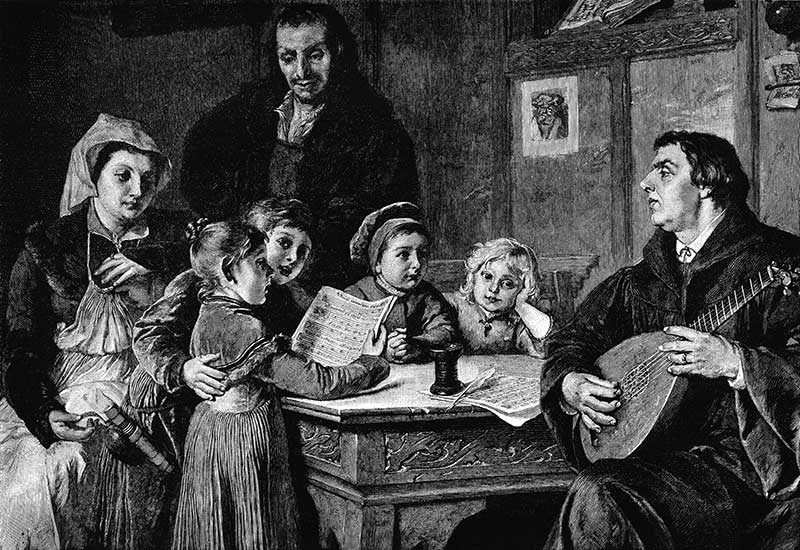Feature
More than Schooling
The Perils of Pragmatism in Christian Attitudes Toward the Liberal Arts
by Robin Phillips
We hear a lot these days about the importance of "worldview education" or "worldview thinking." From a Christian perspective, worldview education can be defined as an education that takes seriously the reality that Christ is Lord over all of life, that there is no field of study that falls outside the scope of biblical categories. Another way to describe it would be to say that worldview thinking hinges on the understanding that Christianity is not just about the religious or "spiritual" side of our existence, but that it provides a framework for viewing every department of life.
It should be clear that, by this definition, true worldview thinking encompasses more than the liberal arts. Nevertheless, this article will deal only with the ramifications of worldview thinking on liberal arts education. I will argue that among those who have understood the mandate for worldview thinking in the above sense, there are generally two ways of approaching the liberal arts. Often these two approaches are unconscious, but sometimes they are more directly explicated. The first is what I call the pragmatic approach, and the second the childlike approach.
The Pragmatic Approach
The pragmatic approach to the liberal arts sees their value as deriving primarily from specific quantifiable ends, such as winning the culture war. According to this mentality, when a Christian is taught the liberal arts from a Christian worldview, he is essentially being equipped with a set of tools. These tools can be defensive (helping the student shore up his faith against the challenge of false worldviews) or offensive (giving the student the intellectual equipment to make gains in the ongoing fight to claim our culture for Christ), but in both cases, they are valued for their usefulness.
According to this approach, we need to study the great thinkers and writers of the past, not so much because the things they said are valuable in and of themselves, but because studying them will give us the brain-power to better defend our beliefs and convince others that the Christian worldview is true.
Sometimes other pragmatic ends are added to this one. A good liberal arts education may be seen as useful, for instance, in helping a student win a scholarship for college or advanced study, get a better job after leaving school, or simply better educate his own children in the future.
The Childlike Approach
The second approach recognizes that a liberal arts education has value for its own sake, independent of any practical goals. Within an education based on the biblical worldview, the liberal arts are worthy of our attention in and of themselves, regardless of any practical utility they may have.
Because this approach reflects the way children instinctively approach learning, I call it the childlike approach. I have never heard a child below age ten ask, "Why am I learning this?" Children will often say that they would rather not learn, or that what we are trying to teach them is boring or uninteresting. But they are eager to learn anything they find interesting or enjoyable for its own sake, and it never occurs to them that the value of a subject lies in its utility. Adults frequently tell children, "You need to study such-and-such because it will help you later in life," but what incentivizes children themselves to learn are things they find lovely and interesting in themselves.

Not Either/Or but Both/And
Of course, these two approaches do not present us with an either/or situation. I have found that as my own children grow and mature, they increasingly come to realize the practical value of learning without losing their enthusiasm for things they find exciting or lovely in and of themselves. But while these two approaches are complimentary, we need to guard against emphasizing the pragmatic one to such a degree that it eclipses, or even excludes, the more childlike one. When I speak of the perils of pragmatism, I mean pragmatism in this exclusive sense, and I suggest that it is precisely one of the pitfalls so easy for worldview-conscious educators to fall into.
Exclusive pragmatism cuts across denominational lines. Functional pragmatists can be found among Catholics, Eastern Orthodox, and Protestants alike, at least on the street level. Many such, having lost the riches available to them from their respective traditions, easily succumb to the general pragmatism of American culture. We see this tendency, for example, in Catholics who assume that, since the only thing that really matters is how one's feelings or spirit is aroused, the artistic form or vehicle is unimportant. This mentality often results in some very sentimental or even phony art.
But is the second approach—that the liberal arts are worthy of our attention in and of themselves—even viable for a Christian? At a worldview conference for homeschoolers, one father told me that the answer to this question is essentially no. He disputed the value of fairy tales because they had little practical value in his opinion. I have met others, even "classical educators," who also thought (or taught as if they thought) that the liberal arts had little value apart from their pragmatic and functional ends. Those with this mindset tend to assume a priori that the pragmatic approach can be the only thing we mean when we speak of educating our children from a biblical worldview.
I can think of at least three reasons why this exclusively pragmatic approach is extremely wide of the mark.
The Argument from Creation
First, consider the argument from creation itself. When we look over God's handiwork, we notice that not everything in our world has a purely functional or instrumental value. Whatever evolutionists may try to say, there are some things that God made just to look nice, or smell pleasant, or sound delightful. This suggests that God himself has put a premium on aesthetic richness, even when such riches are not tied to a specific use.
Relatively few of us can make a living as professional painters, filmmakers, musicians, sculptors, poets, ballet dancers, novelists, architects, or opera singers. The jobs most of us are called to do are not purely creative, but that doesn't mean we can't insert creative touches into our work to underscore the fact that human beings are not merely functional creatures. I am reminded of this when my wife takes a little extra time to set the dinner table nicely, perhaps by adding some flowers and candles, and putting on pleasant music in the background. These little extras do not have an immediate utility, but they are important because they mirror God's creative activity. When God created the world, he didn't just make everything for its utility, but added "unnecessary" little extras that enrich our experience.
Appreciating that some artifacts are good in themselves, and not merely because of what they do for us, is the first step towards a proper appropriation of the liberal arts. The best argument for teaching children to love Aeschylus, Shakespeare, and Hopkins is simply that these authors wrote things that are beautiful. Just as the best reason for smelling a rose is that it has a lovely fragrance, so the best reason for learning Latin is that Virgil's Aeneid is beautiful. Again, the template for this approach is creation itself.
Christian worldview education is in danger of being hijacked by pragmatists who think that non-utilitarian approaches somehow depart from the imperative to bring all things under Christ. This is ironic since the Bible itself reveals a better way, as we can see when we are attentive to God's own handiwork.
The Argument from the Protestant Work Ethic
My second argument for the childlike approach is based in the Protestant work ethic. The first thing we have to understand about this ethic is that it is not uniquely Protestant. The historic Church has always taught the sanctity of lawful labor. But in the Western Church of the late Middle Ages, the notion arose that the work of the laity was of less value spiritually than the work of those devoted to religious life, such as priests and nuns. While it may never have been expressed explicitly as such, an implicit theology began to emerge that assumed that the best a lay person could do, so far as his daily work was concerned, was to refrain from sinning in the course of it.
The Protestant Reformers recovered the genuinely "catholic" truth (attested to by many non-Protestant writers throughout the history of Christendom) that all legitimate callings have inherent value. Because the dominion mandate of Genesis 1:28 sanctifies all honest labor, the work of a baker, housewife, carpenter, or administrator is just as valuable as that of a priest or nun. The Protestant work ethic could affirm that all work is valuable because of the nature of work itself, and not just because of its produce or results. Hence, under the Protestant canopy, the term "vocation" (calling), which had previously applied only to full-time ministry, came to refer to all legitimate professions.
The failure to appreciate the biblical teaching on vocation was not limited to the Roman Catholics of the late Middle Ages. To this day, many good Protestant pastors must continually remind their congregations that the lay life is also full-time Christian service, and accompanied by the promise of a full-time servant's reward.
I suggest that this doctrine of vocation parallels how we should think of the liberal arts. Just as God's sanctification of work means that all honest labor has value for its own sake, so too, our engagement in and enjoyment of the liberal arts have value in themselves if done to the glory of God. Consequently, we should not always feel the need to tie the value of an artwork to any instrumental purpose outside the work itself. This view aligns with what many art theorists have tried to convey by describing art as disinterested, meaning that it does not have an agenda to push outside itself.
This is not "art for art's sake" in the romanticist or modernist sense, for the framework I am putting forward is necessarily theistic, even Trinitarian. It recognizes that art, like labor and mathematics, gives glory to God for what it is in itself beyond any pragmatic ends it might achieve. (And when the liberal arts do help us achieve pragmatic goals, that, too, brings glory to God.) A Christian approach to the liberal arts, then, differs from a non-Christian approach primarily in recognizing this fact, and in being able to glorify God for the beauty and creativity he has made it possible for writers, artists, craftsmen, and composers to achieve.
Because of common grace, even art produced by unbelievers can possess this intrinsic value, just as the lawful labor of pagans can have intrinsic (though not unqualified) worth. What Gregory Wolfe wrote in his book Beauty Will Save the World about Christian art being incarnational applies to much art that is produced by unbelievers:
All great Christian art is incarnational because art itself is the act of uniting form and content, drama and idea, the medium and the message. If art is dominated by a moralistic desire to preach at the audience, it will become lifeless and didactic. We can easily spot didacticism when its message is different from what we believe, but no one who cares about art should confuse it with politics or theology. Art does not work through propositions, but through the indirect, "between the lines" means used by the imagination.
The Argument from Love
My third and final argument for a non-utilitarian approach to the liberal arts is that the arts enable us to grow into richer and deeper people with a greater capacity for loving God. At its best, a liberal arts education achieves Plato's goal of helping the student love what is beautiful. Children who are saturated in the arts can be oriented to love the good, the true, and the beautiful on a pre-cognitive and affective level.
Now, in a sense, you might call this a functional goal of education, since fostering the love of God is indeed one of its primary aims. But this goal is not something that can be quantified or measured. We are here talking more about what the liberal arts help us be than about what they help us do. When we take time to memorize a poem by Gerard Manley Hopkins or to listen to an entire movement of a Beethoven symphony without interruption (not an easy goal in our age of constant distractions!), there are no measurable benefits. Yet activities like these can enrich and deepen our souls, and thereby increase our capacity to love.
The Problem with Pragmatism
Of course, the pragmatic benefits of education are important, too, and also bring glory to God. But viewing education entirely in terms of pragmatic ends—whether it is winning the culture wars or getting a better job—will have a soul-destroying effect on almost every subject we touch.
The exclusively pragmatic approach does a particularly great disservice to the teaching of literature since it orients us to adopt a didactic and utilitarian approach to texts. We may start to think that the value of a text lies in the worldview lessons we are able to draw out of it and completely overlook the aesthetic considerations. Many, for instance, have the idea that the primary purpose of learning Shakespeare is to understand allusions and figures of speech, or that memorizing poems is mainly good as an exercise to develop memory skills, or that the value of learning Latin is to understand word origins, and so forth. The idea that learning Virgil in the original Latin has a value not tied to any practical benefit strikes them as odd.
When students are trained to think in strictly pragmatic ways, they will find it difficult to enjoy, say, a Shakespeare play if they can't derive a specific worldview lesson from it. They may become so over-active in finding worldview lessons that they discern some Shakespeare never intended. How much better it would be to get them to enjoy Shakespeare plays simply for their masterly use of language and compelling plots and characters. How much better for students to come to love things that are noble and praiseworthy even when they do not have a specific use. As Flannery O'Connor put it in Mystery and Manners, "The fact is, people don't know what they are expected to do with a novel, believing, as so many do, that art must be utilitarian, that it must do something, rather than be something."
Of course, it's possible to go too far in the other direction and assume that writers like Shakespeare never try to engage the mind on important issues, or never try to teach us lessons we can apply in life. That is not what I am saying. The interpretive work must be done on a case-by-case basis, but we should be free to pursue literary criticism unencumbered by an a priori need to force artworks into pragmatic or moralistic categories.
The a priori—and often unconscious—commitment to pragmatism may be one of the reasons why instrumental music is often neglected in classical Christian schools. It is difficult to know what to do with a medium that is so obviously non-functional and is lacking in an explicitly didactic element.
It should be clear by now that the problem is not with a strong focus on worldview education but with a wrong understanding of the Christian worldview. Recall that earlier I defined worldview education as an education that takes seriously the reality that Christ is Lord over all of life, that there is no area of life that falls outside the scope of biblical categories. Once we appreciate that good art falls under the rubric of the Christian faith because of what it already is in itself (assuming, of course, that it is truly good art, and our worldview will be central in helping us make such a determination), we are liberated from having to artificially turn everything into a "Christian subject" by manipulating its content.
For example, we wouldn't have to make math a "Christian" subject by doing story problems about the dimensions of Noah's Ark, or make logic Christian by doing syllogisms about the fact that all men are sinners. We would see that mathematics and logic are already Christian by virtue of what these disciplines are inherently. The same applies to all the liberal arts.
A Work of Art Is a Work of Art
Francis Schaeffer can be helpful here. In his book Art and the Bible, he writes,
Too often we think that a work of art has value only if we reduce it to a tract. This too is to view art solely as a message for the intellect. . . . Perspective number one is that a work of art is first of all a work of art.
If we could all adopt Schaeffer's "perspective number one," I believe it would transform how we view education. For one thing, we would cease expecting students to analyze a book after only one read (a practice that only trains them to be opinionated) and instead encourage them to enjoy it as a work of art and to savor it two or three or more times. We would devote more time to simply letting the riches of our liberal arts tradition sink into students' hearts and minds, in order to cultivate what Oscar Wilde called "a temperament exquisitely susceptible to beauty."
Here I am tracking some of the points that Gregory Wolfe made in his book Beauty Will Save the World. Wolfe echoes Schaeffer's concern, and he suggests that our inability to take artworks on their own terms arises because of a deficit of imagination in American culture. "The root of the problem," he writes,
is a misunderstanding of, or aversion to, the nature of the imagination itself. Part of this can be traced to the Puritan and pragmatic strains in the American character. Conservatives have, by and large, focused their energies on political action and the theoretical work necessary to undertake action. The indirection of art, with its lack of moralizing and categorizing, strikes the pragmatic mind as being unedifying, and thus as inessential. Insofar as the great artists and writers of the past are admired, it is for their support of some idea, rather than for the complex, many-sided vision of their art.
The Well-Formed Soul
What is at stake is the formation of the soul. Being able to just be in the presence of beauty is central to coming to know God and to participate in the sacramental life. As students come to appreciate beauty for its own sake—independent of utilitarian goals—their souls are prepared to receive God at a deep, pre-cognitive level. As Oscar Wilde understood, sensitivity to the beauty of material things prepares one's soul to become sensitive to the beauty of spiritual things. To learn to be still and silent in the presence of great beauty prepares one to be still and silent in the presence of great holiness.
Oscar Wilde did not understand the full implications of this himself, and that fact serves as an important reminder that the biblical worldview is central to prevent aesthetic sensitivity from lapsing into mere romanticism. Education should be explicitly Christ-centered, but part of what it means to have a Christ-centered education is that our souls are helped to grow in these kinds of enriching ways.
I confess that I do not always practice what I preach. When I read a book, I usually approach it for how it's going to help me with specific ends I am trying to achieve. Except for poetry, I find it difficult to let good texts work their slow and strange magic on me. I want to get what I'm looking for and move onto the next thing, rather than allow art to provide me with what Wolfe calls "the necessary contemplative space that pulls us back from the realm of action in order to send us back wiser and more fully human."
In a society that values efficiency over depth and productivity over quality, this is a temptation we all face. Our schools—even our Christian schools—are too often based on the model of factory production, where the main values are speed and efficiency, and where the only type of progress that counts is that which can be quantified.
Love & Imagination
The ability to inculcate students with sensitivity to beauty is the mark of a great teacher, yet this is something that is caught from a teacher as much as it is taught. It is what David Brooks calls "an emotional education" in his New York Times op-ed piece, "The Other Education." Brooks here refers to the knowledge that "comes indirectly, seeping through the cracks of the windowpanes, from under the floorboards and through the vents. It's generally a by-product of the search for
pleasure, and the learning is indirect and unconscious."
Brooks attributes an individual's intuitive "mental map" to this more affective, emotional education. This mental map, he explains, "has worked its way into my head, influencing the way I organize the buzzing confusion of reality, shaping the unconscious categories through which I perceive events."
Jamie Smith has recently written some excellent things about education that dovetails with Brooks's observations. Following St. Augustine, Smith shows that our loves orient us to visions of human flourishing that pull us towards a certain telos far more effectively than someone trying to push us there. He also argues that the real competitor of classical education is not the public schools, as so often thought, but the panoply of what he calls "secular liturgies," which also aim to capture our imaginations on an instinctive level. For him, Christian education is important, not because the public schools are so bad, but because shopping malls, commercials, and clothing advertisements are so good, or appear so to the impoverished soul.
The idols of the materialistic world usually reach our hearts only because they have first captured our imaginations. Now, capturing the imagination is also what a liberal arts education should fundamentally be about. It's not simply about learning things, but about being nourished, and coming to love what is good, true, and beautiful at a gut level.
Put another way, it's not so much about what the arts are teaching us, but how they are touching us, though here again we must be careful not to create a false dichotomy. I am not calling for an anti-intellectual romanticism, but for a vibrant intellectualism anchored in the poetry of life. It's about creating students who love the liberal arts for what they are in themselves and not merely for what they can do for us, and who have this type of love because of their biblical worldview and not in spite of it. This type of education is the true competitor to the spirit of the age, for it continually reminds us that our purpose in life is not merely functional and utilitarian. It reminds us that we are creatures in God's image and not machines. •
Robin Phillips has a Master’s in Historical Theology from King’s College London and a Master’s in Library Science through the University of Oklahoma. He is the blog and media managing editor for the Fellowship of St. James and a regular contributor to Touchstone and Salvo. He has worked as a ghost-writer, in addition to writing for a variety of publications, including the Colson Center, World Magazine, and The Symbolic World. Phillips is the author of Gratitude in Life's Trenches (Ancient Faith, 2020), and Rediscovering the Goodness of Creation (Ancient Faith, 2023). He operates a blog at www.robinmarkphillips.com.
subscription options
Order
Print/Online Subscription

Get six issues (one year) of Touchstone PLUS full online access including pdf downloads for only $39.95. That's only $3.34 per month!
Order
Online Only
Subscription

Get a one-year full-access subscription to the Touchstone online archives for only $19.95. That's only $1.66 per month!
bulk subscriptions
Order Touchstone subscriptions in bulk and save $10 per sub! Each subscription includes 6 issues of Touchstone plus full online access to touchstonemag.com—including archives, videos, and pdf downloads of recent issues for only $29.95 each! Great for churches or study groups.
Transactions will be processed on a secure server.
more on education from the online archives
more from the online archives
calling all readers
Please Donate
"There are magazines worth reading but few worth saving . . . Touchstone is just such a magazine."
—Alice von Hildebrand
"Here we do not concede one square millimeter of territory to falsehood, folly, contemporary sentimentality, or fashion. We speak the truth, and let God be our judge. . . . Touchstone is the one committedly Christian conservative journal."
—Anthony Esolen, Touchstone senior editor






